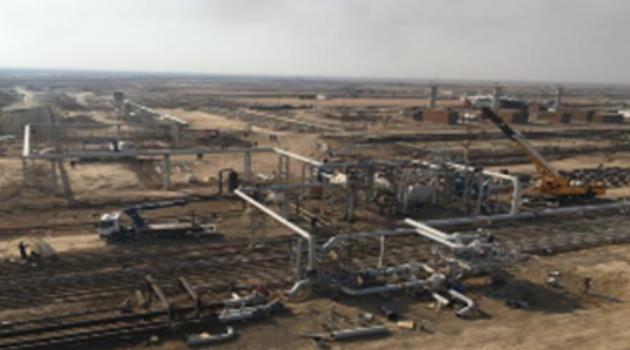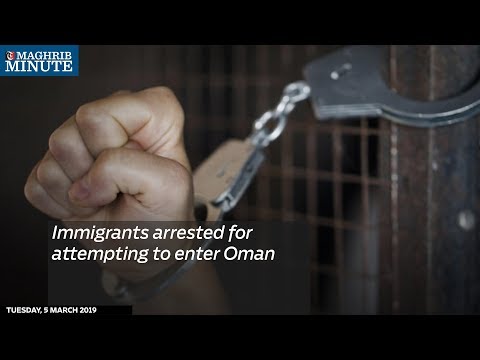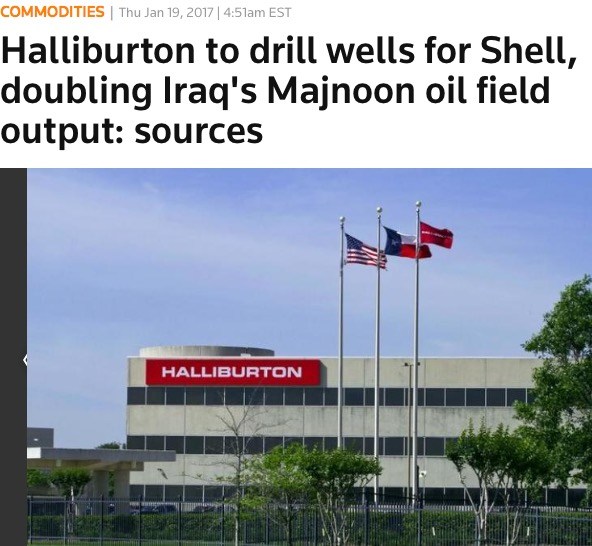By Ahmed Mousa Jiyad.
Any opinions expressed are those of the author, and do not necessarily reflect the views of Iraq Business News.
The Demise of ExxonMobil in the Iraqi Petroleum Sector
A recent announcement by the Ministry of Oil (MoO) confirms months of speculation regarding ExxonMobil exiting one of the world’s super-giant oilfields, i.e. West Qurna 1 (WQ1).
Ten years ago this highly recognized IOC had golden opportunity to operate three giant oilfields in the southern Iraq with a combined production plateau of 6.275 million barrels daily (mbd); an opportunity unavailable anywhere in the world, but now this company exiting the country empty-handed!!
Why was that? What went wrong? Who is to blame? Should any lessons be learned from this failed venture and what are the implications for Iraq as well as for ExxonMobil?
This article attempts to answer briefly the above questions and provide background review that could help in understand the complexity of the circumstances that contributed to and led to this eventuality.
ExxonMobil back in Iraq
IOCs comeback to Iraqi upstream petroleum began in earnest immediately after 2003 invasion.
ExxonMobil was one of too many IOCs that concluded Memorandum of Understanding/ Cooperation- MoU/C with MoO in 2004. That MoU/C was signed on 27 October 2004, renewed twice and remained valid until end of 2008; it comprises conducting seven joint studies and training. The joint studies includes: phases 1 &2 for the development of Zubair Oilfield; Seismic and evaluation study for exploration (old) block 12; Database; Model Tender Document for exploration block 12; Rehabilitating Oil Training Center in Baghdad; Balad Oilfield; Deep drilling program for South Rumaila. Also, ExxonMobil committed to provide training for 129 MoO employees, totaling 1068 working days, during 2005 and 2006.
When MoO decided to hold the first bid round, ExxonMobil was one of seven American companies that were qualified, among 35 IOCs, for participating in the bid round that was held on 29 and 30 June 2009.
ExxonMobil formed three consortia and submitted bids for three oilfields but won nothing during the two days of the competition.
The first consortium with Petronas for Rumaila oilfield; eventually BP/CNPC won when they reduced their remuneration fee to the threshold stated by MoO;
The second consortium with Shell and Petronas for Zubair oilfield competing with three other consortia: Eni/Sinopec/Occidental/Kogas; CNPC/BP; Gazprom/ ONGC/ Turkish Petroleum. The third consortium with Shell for West Qurna1 oilfield competing with four other consortia: CNPC/Petronas/Japex; Lukoil/Conoco; Total; Repsol/StatoilHydro/Maersk.
None won during the biding event.
In October 2009, ENI accepted the MoO’ maximum remuneration fee and agreed to expel Sinopec from its consortium, because Sinopec agreed, days after the biding event, to a C$8.3bn (US$7.2bn) takeover of Addax, which had a stake in the KR TaqTaq field. Hence, ENI consortium secured the Zubair contract.
As for WQ1 it was a totally different story.
Early October 2009 a BBC Monitoring report quoted Lukoil boss Vagit Alekperov had said, “We have let it be known to Iraq’s Oil Ministry that the consortium of Lukoil and ConocoPhillips is ready to enter into direct talks concerning the West Qurna-1 project on the terms that were announced earlier by Iraq’s Oil Ministry,”
Probably, ExxonMobil found itself left behind and empty-handed from the first bid round since BP/CNPC won Rumaila; ENI lead consortium secured Zubair and now Lukoil and ConocoPhillips conceding to MoO terms regarding WQ1. Moreover, ExxonMobil had no intention to participate in the second bid round to be held in December 2010.
All the above prompted ExxonMobil/Shell, four weeks after Lukoil and ConocoPhillips announcement, to present similar acceptance of MoO terms regarding the maximum remuneration fee.
The Ministry favoured ExxonMobil/Shell by not considering Lukoil/ConocoPhillips offer promptly, and when ExxonMobil/Shell made their offer it was selected; presumably due to suggested production plateau target-PPT differential that tilted towards ExxonMobil/Shell!!! The Cabinet approved the award of WQ1 to ExxonMobil/Shell on 25 January 2010.
But ExxonMobil negotiated secretly with KRG after the company secured WQ1 contract with the federal ministry and it had signed the second amendment to the contract on 18 August 2010 adding 500kbd to an already high PPT at a higher remuneration fee of $2/b.
ExxonMobil-KRG secret negotiation led to signing six production sharing agreements on 18 October 2011, though it knows of the blacklisting policy by the federal ministry of oil, i.e, ignoring and disregarding the federal government imposed policy.
Contracts with KRG add insult into injury since three of these contracts are related to exploration blocks and fields that fall within the “disputed territories”; these are Bashiqa, Al Qosh and Qara Hanjeer, the other three are Arbat East, Pirmam and Betwata.
That unwise and puzzling move by ExxonMobil led to excluding it from leading the Common Seawater Supply Project-CSSP; reducing its Participating Interest in WQ1 (through the Third Amendment of the contract dated 28 November 2013) and blacklisting it from any future upstream projects such as Nassiriya Integrated Project-NIP.
That unwise action was writing on the wall that had in fact commenced the demise of this giant IOC in the Iraqi upstream petroleum.
The position of ExxonMobil in WQ1 weekend further when Shell exited WQ1 after it had exited Majnoon oilfield in June 2018.
ExxonMobil attempted a comeback to Iraqi petroleum, by exploiting the naivety and narcissism of a former Minister of Oil, Jabbar Luaibi, through Southern Iraq Integrated Project- SIIP. He and ExxonMobil were close to trap Iraq in an Odious Contract. The Ministry of Oil was cautioned of the detrimental consequences of such a contract and luckily for Iraq that contract was dismissed.
The rise and fall of ExxonMobil in KRI was even more dramatic despite the fact that KRG offered lucrative production sharing agreements. Media sources’ report that ExxonMobil had conducted geological studies that doubted the existence of enough reserves in most of these blocks. Such results prompted Exxon to relinquish three of its six blocks: Betwata in 2015, and Qara Hanjeer and Arbat East in 2016.
Of Exxon’s six blocks, Bashiqa may be the most promising. However, in 2017, it transferred half of its 80 percent interest in this block – along with operatorship – to DNO and early this year it agreed to sell 32 percent to DNO, which practically and effectively ends ExxonMobil involvement in this block. Finally, ten years on with no much progress in AlQosh and Primam.
ExxonMobil adventure in Kurdistan Iraq ended, mostly, miserably!
To sum up, in that first biding round the company had three valuable opportunities and, analytically and legally, it and its partners could have won all three super-giant oilfields (Rumaila, Zubair and WQ1) with a combined production plateau of 6.275 million barrels daily-mbd against a combined minimum PPT proposed by MoO of 2.758 mbd; it won nothing during the bidding event!!!!!!!!!.
Instead, ExxonMobil sought a divisive course of action in the domestic Iraqi politics by concluding ill-fated PSAs with KRG; was that due to lack of vision, or geopolitical nativity or arrogance that still reflects a “Seven Sisters” mentality, or a hidden political agenda aiming at disintegrating the country; who knows!!!!!
What went wrong with ExxonMobil and its economic model?
Many views argued that the fiscal terms of the Iraqi long term service contract-LTSC for WQ1 are tough enough that eradicate the Internal Rate of Returns-IRR of the economic model which the IOC premised its final investment decision-FID on it.
This might be partially true as the comparative analysis of LTSC with other types of contract, particularly the production sharing contracts-PSCs indicates the “Government take” are higher under the LTSC than the PSCs. This, from international energy political economy perspectives is good for Iraq and, moreover, that corresponds with the Iraqi constitutional provision that calls for “develop the oil and gas wealth in a way that achieves the highest benefit to the Iraqi people” (Article 112, Second)
Nevertheless, contractually and analytically LTSC for WQ1is identical in structure, contents and fiscal terms, except the particularities of WQ1 oilfield, to all LTSCs for the brown fields offered under the first bid round, i.e, Rumaila, Zubair and the 3 Missan oilfields- Buzurgan, Abu Ghrab and Faqa. This leads one to question why ExxonMobil finds the fiscal terms unfavorable while other IOCs continue in the redevelopment of the oilfields.
It took almost one year to prepare for the first bid round and the final text of the LTSC was thoroughly examined by all qualified IOCs for that bid round. Logically and imperially, all IOCs should have formulated their economic model and bid on what the LTSC offers. It is rather surprising to claim, ten years later, that the offered fiscal terms do not match with the company economic model!!
The economic model of any IOC is its own making; reflecting its vision, its global profile, strategic positioning, strengths, and stakeholder/shareholder’s interests among other things. Accordingly, the level of IRR is the fiscal measure upon which the FID premised. Majors or Big Oil usually have high IRR, due to their international profile , their integrated structure across the value chain of petroleum industry and the “opportunity cost” of a particular investment.
IRR under LTSC fiscal terms depends mostly and directly on: production level, capital cost-investment, cost recovery and remuneration fee; indirectly it depends on oil prices through the term of “deemed revenues” provision that impact the quarterly cost recovery and remuneration fee entitlement.
Oil price fluctuates, and nothing new about that at all; its fluctuation like a “Yu-Yu” is more normal and usual than otherwise. Iraqi oil export price averaged at $53.19 a barrel during the 12 months period November 2008-October 2009; the time that IOCs considered oil prices in their economic model. During the period from July 2008 to March 2021 Iraqi oil export price averaged at $69.55 a barrel; hence the argument that IRR eradication was attributed to oil prices and, accordingly on cost recovery and remuneration fee is not convincing.
What remains is the impact of oil production level on IRR value. Oil production levels have implications and direct impact on capital cost, cost recovery and remuneration fee, and hence on IRR.
For WQ1 the MoO requests a minimum plateau target of 600kbd during the first bid round. ExxonMobil presented 2.325mbd, i.e., nearly four folds what MoO had envisaged!! Moreover, soon after signing the contract ExxonMobil requested adding further 500kbd leading to higher plateau target at 2.825mbd.
ExxonMobil should have known that such unreasonable unattainable plateau target within the contracted timeframe weakens the logical premises of its economic model and the assumed IRR; it was a problem of its own making and shed much doubt about the validity and soundness of its model not the LTSC stringent fiscal terms.
However, Amendment 4, signed on 19 February 2014, to WQ1 contract, provides further relieves from the terms of the contract such as reducing the plateau target, performance factor and R-Factor among others that provide significant fiscal incentives to WQ1 consortium.
All the above refutes the argument that put the blame squarely on the terms of the contract in the deteriorating IRR and ExxonMobil economic model.
Even if one, for the sake of the argument, accepts for a while the tough terms of WQ1 contract, what about ExxonMobil economic model for KRG’ PSCs!!
All commentators and oil experts agree that KRG’ PSCs provide lucrative terms for the benefits of the IOCs. Why then ExxonMobil fails measurably there too?
Was that demise due to wrongly-premised economic model or “inside-misguidedness”!! Media sources revealed that Ali Khedery, a former American diplomatic advisor in Iraq who subsequently joined Exxon as director of public and government affairs for ExxonMobil Kurdistan Region of Iraq Limited (EMKRIL), Exxon’s KRG-focused subsidiary, “had facilitated the negotiations that brought the company to Kurdistan.” Was ExxonMobil victimized by its own staffer!!!!???
ExxonMobil Exit and MoO Options
Contractually, to exit WQ1, ExxonMobil should invoke the termination Article 8 in WQ1 service contract, particularly sub-article (8.2) and, therein, sub-article (8.1 (c)). If ExxonMobil wishes to assign its rights and obligations, as it seems doing so far, it should comply with the provisions of Article 28-Assignment.
Available information indicates that the company launched the contractually exiting process in January by sending a formal letter to notify MoO it had found prospective buyers; ExxonMobil and MoO had three months, until 28 April, to agree on a course of action.
The ministry has three options: the first is to accept the prospective buyers found by ExxonMobil; 20 percent to CNOOC and 12.7 percent to PetroChina-CNPC. This means increasing CNPC participating interest to 45.4% and increase China position in WQ1 to 65.4%.
The second option is to find another American company to acquire ExxonMobil share; this what the Ministry has publically announced and it seems to favour Chevron, but Chevron was reportedly not hugely encouraged to invest in WQ1. (But again Chevron was blacklisted by the Ministry due to the company’ involvement in KRG oilfields, though such blacklisting was revoked, unofficially, during the time of former minister Jabbar Luaibi. He paving the way for this company to enter the upstream petroleum through direct backdoor. By the way the Iraqi team in MoU/C with Chevron 2004-2008 was chaired by Jabbar Luaibi).
The third option is to acquire ExxonMobil share by the Ministry through Basra Oil Company-BOC or any other national companies affiliated under the Ministry. This option is similar to what was done when Occidental – Oxy relinquished its participating interest in Zubair oilfield
In any of these options, the Ministry should extract a “capital gain tax-CGT” from the total value of the sold share. The Iraqi tax authority decides the CGT rate, the estimation equation and the compounding rate to arrive at the present values taking into consideration three related variables: the value of the sold share (minus) the present value of the invested capital (plus) the present value of the recovered invested capital (cost recovery).
In my article written almost twelve years ago assessing the first bid round I wrote the following: “What is rather surprising is the somewhat weak contribution of the American oil companies. While they topped the 35 qualified IOCs with 7 companies, only three had participated in the bidding. Were they expected to capitalise on the American military presence and political pressure to have guaranteed access to the Iraqi oil? Or they simply have their own capacity, technical and financial limitations? Or Iraq is not on their strategic priority screen? Or they are trapped in a mind-set of own making that centred on production sharing agreements and “reserves booking”? Or they are not used to this type of open bidding and transparency, and they prefer behind closed doors deals? Only time would provide the satisfactory answer.” (MEES 52:33 17 August 2009)
Any lessons learned, Ministry of Oil????????
Click here to download the full report in pdf format.
Mr Jiyad is an independent development consultant, scholar and Associate with the former Centre for Global Energy Studies (CGES), London. He was formerly a senior economist with the Iraq National Oil Company and Iraq’s Ministry of Oil, Chief Expert for the Council of Ministers, Director at the Ministry of Trade, and International Specialist with UN organizations in Uganda, Sudan and Jordan. He is now based in Norway (Email: mou-jiya(at)online.no, Skype ID: Ahmed Mousa Jiyad). Read more of Mr Jiyad’s biography here.
The post The Demise of ExxonMobil in the Iraqi Petroleum Sector first appeared on Iraq Business News.



